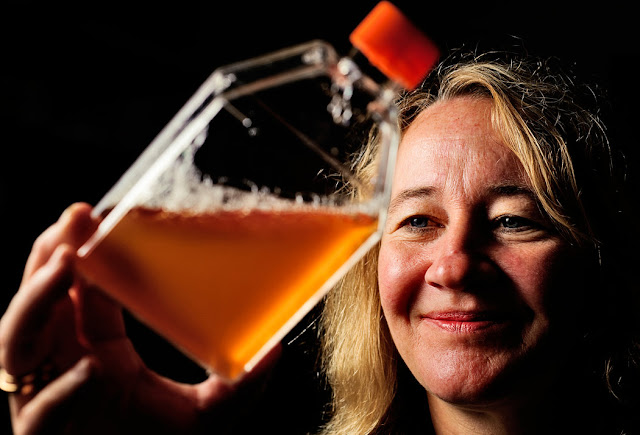Throughout a week the committees that select the winners of
the Nobel Prizes announce their choices sometime around noon Swedish time.
With the Eastern part of the United States six hours behind
Sweden and the West coast nine hours behind, American researchers tend to be
asleep when that life-changing call comes. Here is how five
scientists learned about their Nobel Prizes.
Carol Greider, Johns Hopkins Medicine -
Co-Recipient, 2009 Nobel Prize in Physiology or Medicine
I don’t usually do the laundry so early in the morning, but
I was already up, and there was all this laundry staring at me. I was supposed
to later meet two women friends to take our morning spin class.
After I got the call, I sent my friend an e-mail: “I’m sorry
I can’t spin right now. I’ve won the Nobel Prize.”
Peter Agre, Johns Hopkins Malaria Research
Institute
2003 Nobel Prize in Chemistry
 |
Dr. Agre was awarded for his discovery of aquaporins, the plumbing system for cells. David Goldman for The New York Times |
There were some clues that this would happen. Like getting invited to Sweden to give lectures. But at 5:30 a.m. on an October morning, the phone rang. “Hello, Professor Agre, this is Stockholm. You have just won the Nobel Prize in Chemistry. In about 10 minutes, we’re having a press conference and the whole world will hear — so you’d better get on with your day.”
I sprinted into the shower, and my wife, Mary, called my
mother, who said, “That’s very nice, but don’t let it go to his head.”
Linda Buck, Fred Hutchinson Cancer Research Center -
Co-Recipient, 2004 Nobel Prize in Physiology or Medicine
 |
Dr. Buck was recognized for her efforts to decipher the workings of the sense of smell. Dan Lamont/Howard Hughes Medical Institute, via Associated Press |
It was close to 2 a.m. here in Seattle when they tried to
reach me. The committee did not have my phone number, which is unlisted, but
they managed to obtain the home number for the director of my division. The
Nobel member calling him said he was from Sweden and would like my number.
Since I was on a faculty search committee, the director
guessed it might be someone from Sweden who was calling about the faculty
position, but wasn’t aware of the time difference.
He therefore told the caller that if he was interested in
inquiring about a job here, this was probably not the best way to go about it.
The caller then told the director why he was calling, and
the director responded, “That will get you a job here!”
Carl Wieman, Stanford University -
2001 Nobel Prize in Physics
 |
| Dr. Wieman and his team were recognized for producing a state of matter in which atoms merge into a single wavelike entity that is much like a beam of laser light.Kevin Moloney for The New York Times |
I was in bed asleep, of course! Actually, I was awakened not
by a call from Sweden, but by a call from my brother. The Swedes were not able
to get my phone number, but my wildly optimistic brother got up in the middle
of the night to check the announcement of the physics prize on the Internet,
and his congratulatory call woke me up.
Since it was my brother, my first reaction was to go check
the Internet to make sure he was not playing a practical joke.
Eric Betzig, Howard Hughes Medical Institute -
2014 Nobel Prize in Chemistry
I was in Munich to give a talk at a conference when the
committee called to tell me about the prize.
The Nobel was the furthest thing from my mind. When my
cellphone rang, I wondered who the heck would call me at 5:30 in the morning
East Coast time and immediately worried that there was a problem at home.
They had actually called my ex-wife’s phone first, but my
16-year-old told them where to find me.
After about 20 seconds of shakes and another 20 seconds to
tell them “yes,” I hung up in shock. The closest analogy I can make is that it
feels like getting hit by a bus. You know that you’ve just experienced a
completely unexpected and life-changing event, and you have no idea how it will
impact you and your plans for the future.

